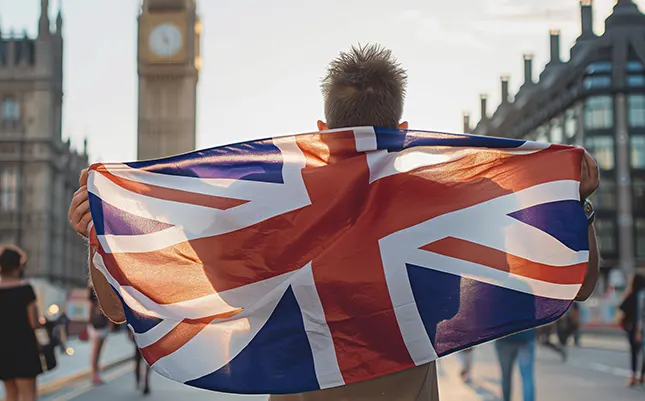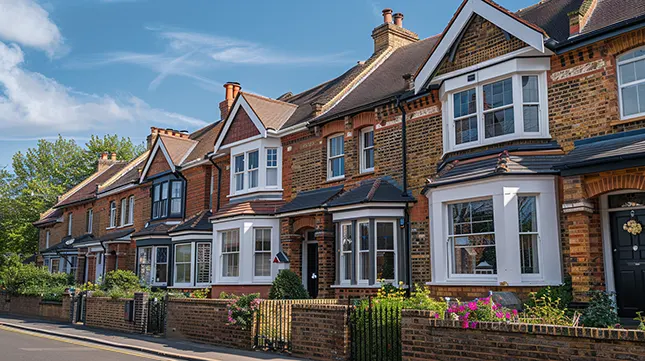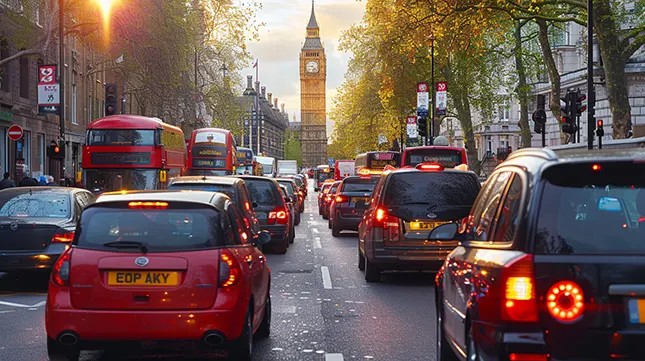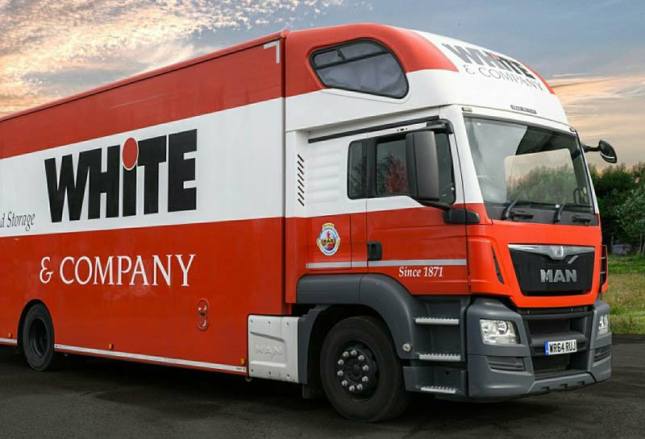Moving to UK from US – 2024 Returning Guide

Are you planning to move back to the UK from the US?
It’s natural to feel that a lot has changed since you first moved abroad and many returning expats will indeed find that the UK has undergone some significant transformations over the last few years.
Even though they’re beginning to feel like a distant memory, the impact of the pandemic and Brexit have reshaped many aspects of life in the UK, influencing everything from the economy to everyday life.
Understandably, these events have prompted many people to reassess their priorities and lifestyles.
Your reasons for moving back to the UK may be personal, professional, or a mix of both, regardless of your own personal motivations, White & Company are here to assist you in making your relocation process as smooth as possible.
Given the many changes in the relocation process, additional preparations might be necessary, especially regarding costs, so even if you think you know everything it’s worth taking the time to read this article, just to be sure!
This guide aims to cover the most crucial aspects of moving from the US to the UK, providing you with the essential information needed to facilitate a quick and easy transition.
Whether you are relocating for work, family, or a change of pace, this comprehensive guide will be invaluable in helping you navigate the complexities of your move.
The Benefits of Moving Back to the UK

There are a number of benefits to returning to the UK.
Many locations across the UK provide a high quality of life that many returning Brits are sure to find appealing.
A huge aspect of this higher quality of life is healthcare.
Contrary to our American cousins, we have the NHS, so unless you intend to fund private healthcare, you won’t have to worry about paying for health insurance once you are home.
Furthermore, the UK’s robust social safety nets, including generous parental leave, statutory sick pay, and pension schemes, contribute to a balanced and secure lifestyle.
The chances are you will be returning, at least initially, to stay with family and reconnect with old friends.
One of the biggest sacrifices made when moving to another country is the close family ties, which are hard to maintain.
But you will find that you will pick up where you left off very quickly and will re-establish yourself much quicker than you think.
Many British citizens move to the US for work.
Another positive is that you may have been promoted whilst living in the US, perhaps you have more experience compared to when you left.
You may find that you can command a higher salary now that you are back in the UK.
While there would have been good reasons for embarking on your journey to America, now that you have decided to come home, you need time to adjust as things have changed.
Coming home can be as unsettling as arriving in a completely new country.
Take your time to settle back into life in the UK before you make any big decisions about where you want to live or work, etc.
You will get back into the swing of things in no time.
If you are a British citizen or hold Indefinite Leave to Remain (ILR) in the UK, you do not need to apply for a visa to return and live in the UK after living abroad, including if you have moved to the USA and obtained a permanent visa there.
However, there are important this to consider that will depend on your current citizenship status:
- British Citizens: If you are a British citizen, you can return to the UK at any time without needing a visa. Having a permanent visa in another countrydoes not affect your right of abode in the UK.
- Indefinite Leave to Remain (ILR): If you hold ILR, you can generally return to the UK without needing a visa, provided you have not been away from the UK for more than two years. If you have been away for more than two years, you might need to apply for a Returning Resident visa to regain your ILR status.
If you have lost your ILR status due to being away for an extended period, you will need to meet certain criteria to be granted a Returning Resident visa, such as demonstrating your strong ties to the UK and your intention to settle permanently.
If your residency status does not fall under British citizenship or ILR, you may need to follow different procedures entirely, this will depend on your specific circumstances and the type of visa you previously held.
For more detailed information on returning to the UK, visit the official UK Government website.
If you are seriously considering the move we would suggest consulting with an immigration expert who can provide personalised guidance based on your specific situation.
They will have all of the expertise and know-how to properly advise you and ensure you have the quickest and most hassle-free route back to the UK.
Financial Considerations
Financial planning is essential when it comes to relocating internationally, this applies whether you are heading to the USA or upon your return to the UK.
The cost of living in the UK can vary significantly depending on the region, while London is known for its high living expenses, other areas such as Northumberland, Glasgow, and parts of Wales offer more affordable options.
To budget effectively, it’s crucial to research and compare costs for housing, transportation, groceries, and other daily expenses.
Setting up a UK bank account is straightforward, with many banks offering services to expatriates, and will be an essential step on the ladder of moving to the UK.
Additionally, services like Halo Financial can help you manage currency exchanges and international transfers efficiently, avoid excessive fees, and ensure that your finances are in order from the moment you arrive.
Property Prices in the UK

UK Property have risen in recent years.
Returning to the UK after living in the US involves navigating a housing market that has experienced significant fluctuations over the past few years.
Factors such as the high cost of living, fluctuating inflation, changing interest rates, and the lingering effects of the COVID-19 pandemic have collectively impacted the market, just as they have globally.
Thankfully, the housing market has shown signs of stabilisation recently, with a slowdown in price increases.
However, returning expats will notice that property prices have risen a lot since they left.
According to the latest Office for National Statistics figures, the average cost of a home in the UK as of March 2024 is £283,000.
Understanding the current UK housing market is crucial for making informed decisions.
While predicting exact trends in the housing market is challenging, some financial experts suggest that property values might decrease throughout the remainder of 2024.
Keeping up to date with these predictions can help you time your purchase better, with several online platforms offering detailed insights into current property prices in the UK.
Websites like Zoopla and Rightmove are excellent resources for checking house prices and trends.
Given the competitive nature of the housing market, it’s advisable to act quickly if you find a property that suits your needs.
Engaging with a local real estate agent can also provide valuable insights and assistance during your search.
Renting a Home in the UK
Just like those looking to purchase a home upon their return from the US, the rental market in the UK has also undergone significant changes in a relatively short period.
What was once easy now feels rather tricky, plus you may find that rental costs are a lot higher than when you left!
The shortage of affordable homes and rising property prices have made it increasingly challenging for prospective buyers to enter the property market.
This, in turn, has led to a surge in demand for rental properties, driving up rental costs substantially.
Despite these challenges, securing a rental home in the UK is still possible, though it may require more effort and flexibility.
Rental prices vary significantly depending on the location.
Cities such as London have always demanded premium rent, but renting a family home for around £1800pcm is possible elsewhere in the UK.
To navigate the rental market effectively, staying informed and acting quickly when desirable properties become available is essential.
Just as you would when you are buying or selling a home, working with a reputable letting agent can provide valuable insights and assistance throughout the rental process.
Understanding these market dynamics and preparing accordingly can help you find a suitable rental property and make your transition back to the UK as smooth as possible.
Head over to the UK Government website for helpful information and guidance for prospective renters.
Living Costs

The cost of living in the UK will vary depending on the area you are moving to.
One of the first things you will notice about coming home is how much more everything costs.
While the cost of living in the UK might seem high, it’s generally cheaper compared to the USA, according to the cost-of-living website Numbeo.
As with the US, the UK has wide variations in the cost of living based on location. For every expensive place to live, there is an affordable alternative, even for big city life.
One key difference you’ll notice is that, on average, salaries in the UK are lower than in the US but not by much.
The average salary in the USA, as reported by the Bureau of Labor Statistics is approximately $49,764 (£39,044) per year in 2024.
Forbes reports that the UK’s average is £35,724 ($45,531).
Despite the lower pay, it’s important to consider the positive factors like pensions and holiday benefits, which are often more generous in the UK.
Living in the UK can be affordable if you plan accordingly, housing, for instance, tends to be cheaper in northern towns and cities compared to London and the Southeast.
Public transport is widely available and often far cheaper and more efficient than in many parts of the US, although you may wish to expect some delays when using public transport, it is by no means perfect!
Additionally, the UK offers a comprehensive public healthcare system (NHS), which can reduce medical expenses significantly compared to the private healthcare system in the US.
When budgeting for your move, consider everyday expenses such as groceries, utilities, and leisure activities, which might be priced differently than what you’re used to.
Many people making the move find websites like Numbeo and Expatistan extremely helpful, with detailed comparisons of expenses, they can help you understand these costs better.
Before moving, ensure that your financial plans account for these differences in living costs!
Having a realistic budget to support your lifestyle in the UK and understanding these nuances will help you make an informed decision and ensure a smooth transition.
Healthcare in the UK
When you move to the UK, you don’t need health insurance.
When you apply for your visa, you will pay a health care surcharge, which will grant you access to the NHS, the UK’s free health care system.
It is however common for expats to opt for private health insurance in order to avoid long waits on the NHS, which seem to be getting longer by the day!
If that is the case, you are able to buy health insurance and access a range of excellent private institutions.
We would always recommend some research when it comes to private healthcare, check out online reviews and find a hospital you feel happy can provide the best service to you and your needs.
Driving in the UK

Driving in the UK may be rather strange when you first arrive.
If you intend to drive as soon as you arrive, ensuring you have a valid driver’s license is important.
Here’s a straightforward guide to help you navigate the process.
Firstly, if you hold a foreign driver’s license, you should contact the Driver and Vehicle Licensing Agency (DVLA) as soon as possible.
The DVLA handles all licensing matters in the UK and will guide you on how to exchange your current license for a UK one.
For US license holders, you can legally drive in the UK for up to 12 months using your American license. After this period, you’ll need to apply for a full UK driving license.
This involves starting the licensing process from scratch, which includes both a theory test and a practical driving test.
To begin, you should apply for a provisional UK license.
Once you have this, you can book your theory test covering road rules and hazard perception. After passing the theory test, you can then book your practical driving test.
The practical test assesses your driving skills on the road and given the differences between driving in the US and the UK, such as driving on the left side of the road and various road signs, it’s advisable to take lessons with a UK driving instructor.
However confident you may feel, if you haven’t driven on British roads for a long period of time it may feel very strange at first, our roads are a lot narrower than across the pond!
An instructor can help you get to grips with the differences and prepare you for both your practical and theory tests.
You can find more detailed information and start the application process on the DVLA’s official website.
By following these steps and preparing adequately, you can smoothly transition to driving in the UK and enjoy the freedom of the road when you are back in England.
Bringing Your Pets

Bringing your pets to the UK requires a number of steps.
Moving back to the UK from the US with your pets, including cats, dogs, and ferrets, is entirely possible.
However, they must meet all the entry requirements to avoid quarantine and the nightmare scenario of having your pet sent back.
Here’s a simple guide to help you through the process:
- Rabies Vaccination: Ensure your pet is vaccinated against rabies. This vaccination must be administered at least 21 days before travelling.
- Health Certificate: Obtain an official health certificate from a licensed veterinarian. This certificate must state that your pet is fit to travel and meets all the necessary health requirements.
- Microchipping: Your pet must be microchipped before or at the same time as its rabies vaccination. The microchip number must match the number on its vaccination and health certificate.
- Tapeworm Treatment: If you’re bringing a dog, it must be treated for tapeworm by a vet 24-120 hours before entering the UK. The treatment must be recorded in the health certificate.
Different rules may apply to other pets, such as birds, rabbits, or reptiles. It’s important to check specific regulations for these animals to ensure compliance with UK laws.
You can find detailed and updated information on the UK government’s official pet travel guidance website.
This site provides all the necessary forms and step-by-step instructions to make your pet’s journey as smooth as possible.
Many animals are easily stressed. By following these steps and preparing in advance, you can ensure a safe and hassle-free move for your furry friends.
Should I Move to the UK from the USA?
So, you’re thinking of making the big move back to the UK but are still on the fence.
No need to worry, we’ve scoured all of the most popular forums for the opinions of people who have actually made the move themselves in search of the benefits and negatives of moving to the UK.
Having a well-rounded view of what the move is like will set you up perfectly for success.
Pros:
- Healthcare: Access the UK’s National Health Care Services at little to no cost – this is a big change for many moving from the US where healthcare is very expensive.
- Education: Benefit from the UK’s world-renowned education system, which is perfect for families and those looking to expand their own knowledge.
- Travel: Enjoy the proximity to Europe, offering extensive travel opportunities that may have been too expensive when living in the USA.
- Employment: Explore a range of compelling job opportunities in a dynamic work environment that will feel rather different to working the the US.
Cons:
- Cost of Living: The UK, especially cities like London, tends to have a higher cost of living compared to many US cities.
- Housing: Accommodation in the UK tends to be smaller, which might be challenging for US citizens who are used to larger properties with lots of outdoor space.
- Immigration: Navigating the UK’s strict immigration rules and visa processes can be complex and time-consuming if you aren’t in the know-how.
- Cultural Adjustment: Adapting to the UK’s culture may require time and effort – while we share a common language, the cultural differences are very clear and can be a shock to some.
Let White & Company Bring you Home

White & Company Truck
When moving to UK from US, arranging the shipment of your personal belongings is a key step that requires careful planning, just as it was when you left.
Here’s what you need to know to make the process smooth and efficient.
First, decide whether you’ll be bringing all your belongings with you.
It’s quite common for people to move with their entire household, so if this is your plan, you should contact a reputable international moving company.
With many options available, choosing the right mover can feel overwhelming.
Make sure you hire the best. Look for companies that are members of professional organisations such as FIDI, BAR (British Association of Removers), and Omni. Membership in these organisations means the company adheres to high standards and undergoes regular audits, guaranteeing top-level service.
For a reliable moving experience, contact White & Company.
We have a history of partnering with dependable companies worldwide and can provide you with the contact details of their trusted US partners.
We offer our valued clients a detailed explanation of the export process from the US and assist you with the UK import process. This includes handling customs documentation and ensuring compliance with UK regulations, which can save you time and hassle.
White & Company can also provide comprehensive insurance coverage for your belongings during transit.
Additionally, if required, we have storage facilities located across the UK.
We can look after some or all of your belongings until you find a suitable home.
You can rest assured that we will transport your personal effects safely and efficiently, allowing you to focus on settling into your new home in the UK.
With plenty of understanding and preparation, your move back to the UK can be a rewarding experience, opening doors to new opportunities and a fulfilling lifestyle back in your home country.

Max is a seasoned writer and blogger in the real estate and home moving sectors, as well as a knowledgeable source of information for expatriates living and working abroad. His detailed insights have helped thousands of people move and live abroad with greater simplicity and ease.
Posted in: News
Leave a Comment (0) ↓


